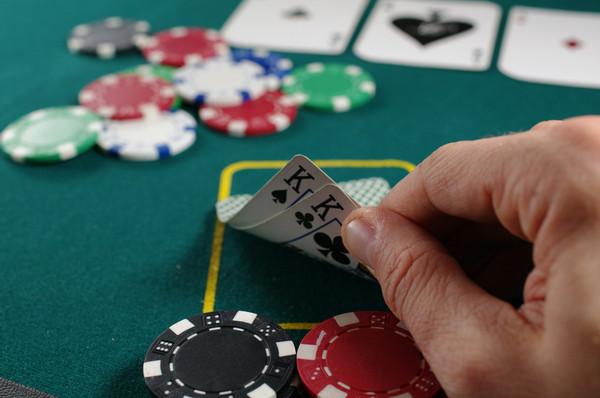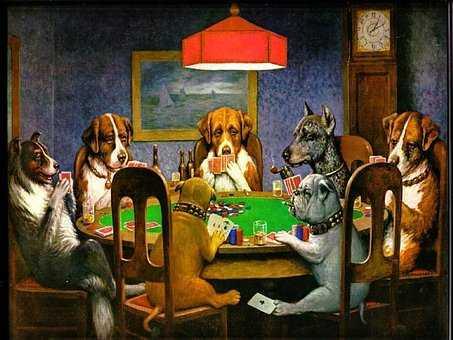Career lessons from the game of poker
Curated from: economictimes.indiatimes.com
Ideas, facts & insights covering these topics:
13 ideas
·10.9K reads
93
1
Explore the World's Best Ideas
Join today and uncover 100+ curated journeys from 50+ topics. Unlock access to our mobile app with extensive features.
Pick The Right Table
A good poker player chooses a table where he has a better chance to win. A group of casual players is better than a table of professional players.
In your career, you need to pick the right stream or the right company, where your skills are in demand, and your contribution will be valued.
290
1.85K reads
Keep Improving
A poker player learns many skills initially about different combinations of cards, and how to play a basic game. He keeps on improving by further calculating the other aspects of the game, which were not understood before.
Similarly, one needs to identify the basic skills for the job and then grow with experience, improving your dealings with people and situations.
265
1.04K reads
Stay Disciplined
A successful poker player constantly plays a high standard, and does not make impulsive decisions. A long-term discipline in a career path builds one's wealth, supported by one’s past success.
A single wrong decision can demolish one’s reputation and credibility.
267
1.11K reads
The Lonely Journey
A poker player has to live by his decisions, even when he is losing.
In our professional life, we are also on our own with our decisions. No one will be there to sympathize with you, and the pain is yours alone.
261
967 reads
Taking The Plunge
Not risking in a poker game means slowly losing or bleeding away our stack. In our careers, we have to take risks, take the jump ahead, getting out of our comfort zones to succeed.
255
786 reads
Bad Situations Are Okay
It’s not the end of the world if a poker player has a set of bad cards, as any bad situation can change with new cards and the skillful playing of the game. In the corporate world, good or bad situations change quickly. Being the weakest in the team does not mean you cannot reach to the top.
Good situations too can change rapidly, so we should not be taking our promotion, bonus, boss or our job for granted.
263
585 reads
Enjoy The Game
Life is a game of poker, and works best when not taken too seriously.
Your career should be something you enjoy doing. It is good to keep the eye on the ball while enjoying the game, playing in the right spirit.
259
694 reads
The Past Does Not Matter
Your past work culture, expectations and even your prior performance do not matter in the present moment.
In Poker, new outcomes, and surprises in the current keep happening in the game of cards, and the past cards dealt cannot influence that. What matters is how you act now.
259
599 reads
The House Always Wins
A certain percentage of the winnings always go to the casino where the game of poker is being played. Similarly, your work has to ensure your employers goals are met, not just yours.
247
698 reads
Walk Away From Bias
If the casino table is rigged or players are playing in tandem, there is a strong chance that you will lose.
In the case of the workplace, if you see extreme discrimination, politics harassment or bias, then there is no need to stay there.
252
578 reads
The Implications of Luck
The game of poker is unpredictable and the luck of the draw lands in our favor, out of the blue.
A successful entrepreneur sticks to his creation, limiting his losses and keeps on working tirelessly for that moment to arrive.
249
656 reads
Fail Fast
A poker player has to decide when to quit (fold) so that he can save his stack for the next game. When the odds are really low, and the cash is bleeding, he makes the decision to fail.
Similarly, in business, we have to know when we are wasting our energies and quit something that is draining our resources, pivot our business if required, or start from scratch on a new one.
258
759 reads
It’s Not The Cards
A good poker player is not dependent on luck of the draw, and on the other player's mistakes to win. It’s about how you play.
Any investor knows that the business will do well not because it’s a great idea, but because there is something he sees in the businessman.
257
580 reads
IDEAS CURATED BY
Kieron L's ideas are part of this journey:
Learn more about personaldevelopment with this collection
How to adapt to different speaking situations
How to engage with an audience
How to use body language effectively
Related collections
Similar ideas
7 ideas
2 ideas
The Hard Truth Of Poker — And Life: You’re Never ‘Due’ For Good Cards
fivethirtyeight.com
5 ideas
How to make smarter decisions ~ Get Rich Slowly
getrichslowly.org
Read & Learn
20x Faster
without
deepstash
with
deepstash
with
deepstash
Personalized microlearning
—
100+ Learning Journeys
—
Access to 200,000+ ideas
—
Access to the mobile app
—
Unlimited idea saving
—
—
Unlimited history
—
—
Unlimited listening to ideas
—
—
Downloading & offline access
—
—
Supercharge your mind with one idea per day
Enter your email and spend 1 minute every day to learn something new.
I agree to receive email updates

